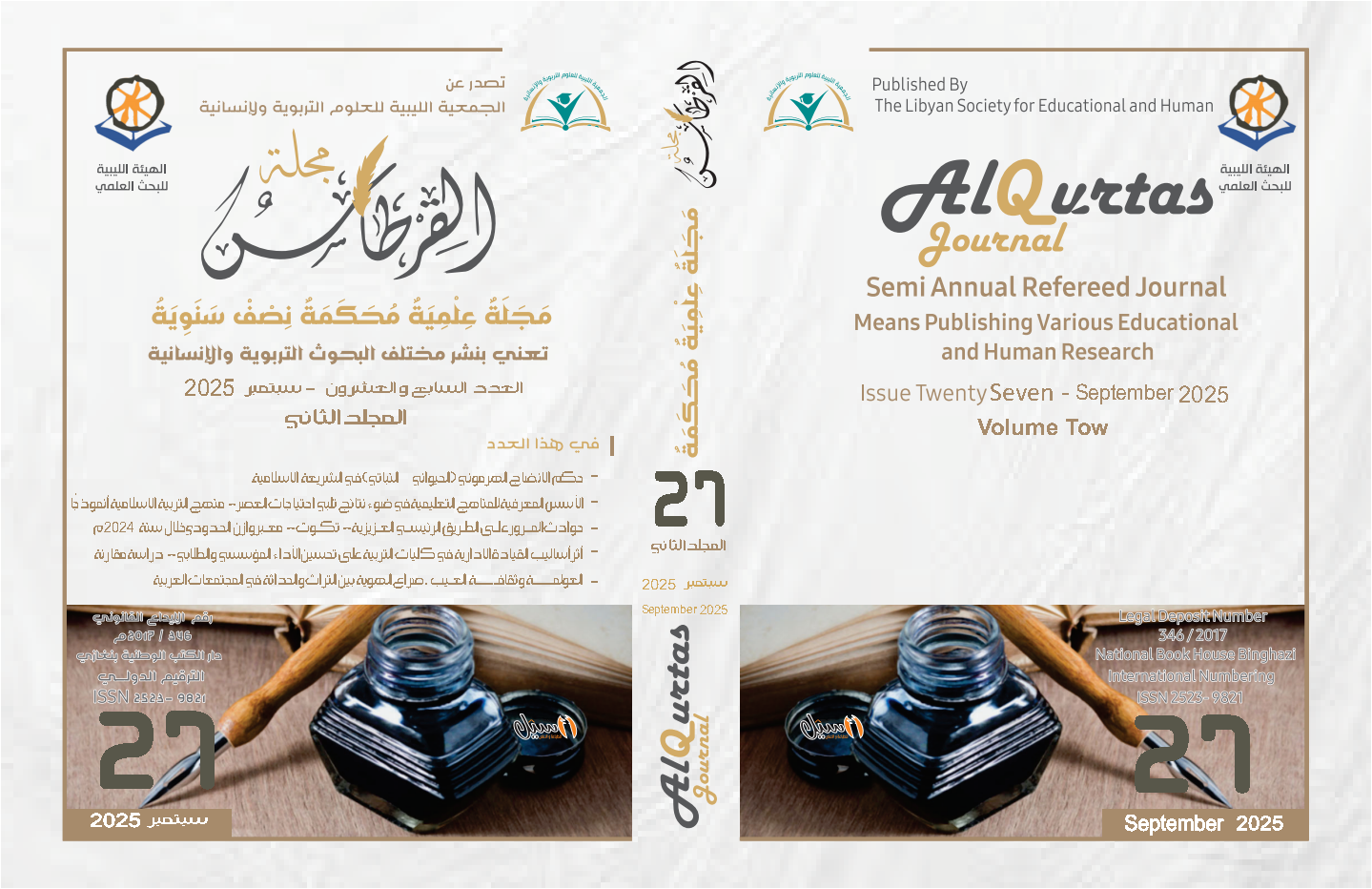Verbs of Speech in Qur'anic Family Dialogues (A Deliberative Approach)
Main Article Content
Abstract
The study of speech acts in Qur’anic family dialogues reveals the depth of the aspect in the text of the Holy Qur’an and highlights the sensitivity of discourse within the context of intricate human relationships. The Holy Qur’an serves as a rich model for this type of communicative acts, reflecting various patterns of interaction amongst family members—such as commands, prohibitions, expressions of emotion, interrogatives, and more. Such examples include the dialogues of Noah with his son, Abraham with his father, Jacob with his sons, and Joseph with his brothers. The Qur’anic dialogue is characterized by being concise, precise, and meticulous when it comes to word choice. This makes it well-suited for detailed pragmatic analysis that uncovers the connection between language and the social context in which it occurs, both in terms of style and communicative impact. This study aims to analyze the speech acts found in Qur’anic family dialogues from a pragmatic perspective that focuses on the speaker’s intent, the context of the utterance, and its effect on the interlocutor
Downloads
Article Details

This work is licensed under a Creative Commons Attribution-NonCommercial 4.0 International License.

